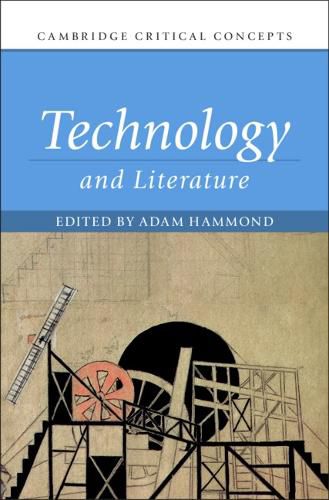Readings Newsletter
Become a Readings Member to make your shopping experience even easier.
Sign in or sign up for free!
You’re not far away from qualifying for FREE standard shipping within Australia
You’ve qualified for FREE standard shipping within Australia
The cart is loading…






Whereas previous books have explored how literature depicts or discusses scientific concepts, this book argues that literature is a technology. It shows how literature has been shaped by technological revolutions, and reveals the essential work that literature has done in helping to uncover the consequences of new technologies. Individual chapters focus on how specific literary technologies - the development of writing, the printing press, typewriters, the computer - changed the kinds of stories it was possible to tell, and how one could tell them. They also cover the way that literature has engaged with non-literary technologies - clocks, compasses, trains, telegraphs, cameras, bombs, computer networks - to help its readers to work through the new social configurations and new possibilities for human identity and imagination that they unveil. Human life is inescapably mediated through technology; literature demonstrates this, and thus helps its readers to engage consciously and actively with their technological worlds.
$9.00 standard shipping within Australia
FREE standard shipping within Australia for orders over $100.00
Express & International shipping calculated at checkout
Whereas previous books have explored how literature depicts or discusses scientific concepts, this book argues that literature is a technology. It shows how literature has been shaped by technological revolutions, and reveals the essential work that literature has done in helping to uncover the consequences of new technologies. Individual chapters focus on how specific literary technologies - the development of writing, the printing press, typewriters, the computer - changed the kinds of stories it was possible to tell, and how one could tell them. They also cover the way that literature has engaged with non-literary technologies - clocks, compasses, trains, telegraphs, cameras, bombs, computer networks - to help its readers to work through the new social configurations and new possibilities for human identity and imagination that they unveil. Human life is inescapably mediated through technology; literature demonstrates this, and thus helps its readers to engage consciously and actively with their technological worlds.